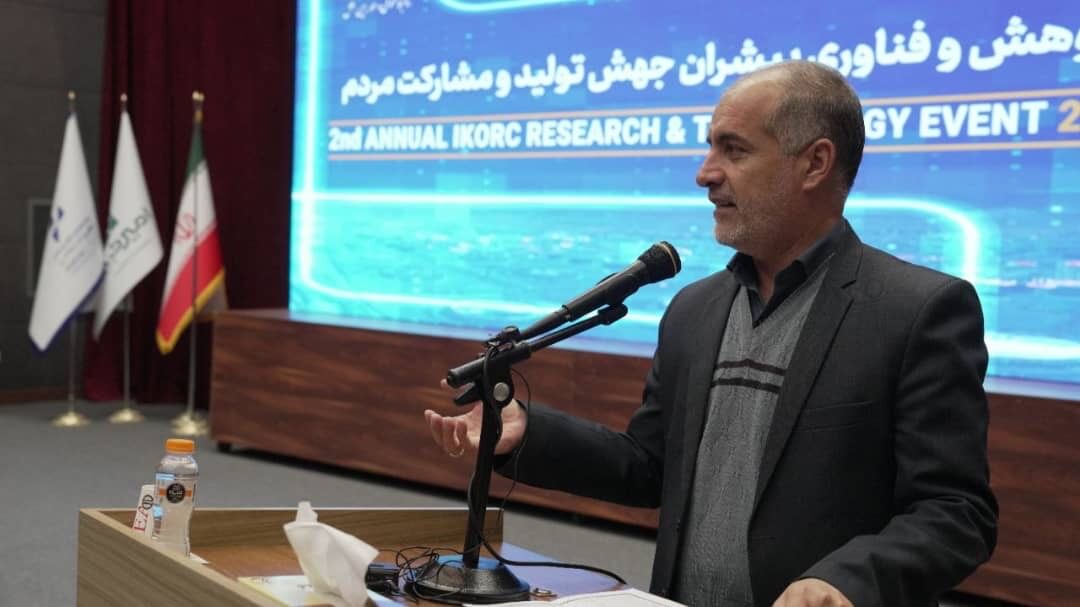Speaking at the Second Annual Research and Technology Conference of the company, Majid Rajabi highlighted the localization of more than 20,000 parts by technology-based companies.
He noted that domestic manufacturers have consistently supported refineries, emphasizing that the company's leadership prioritizes leveraging the capabilities of these companies.
Rajabi added that Iran has become the first country in the region to acquire the technology for manufacturing specific catalysts, previously monopolized by select European and American companies, through collaboration with local firms BehDash and Roz Arvand.
The official emphasized the company’s reliance on global scientific and research advancements, collaborating with research centers, universities, and knowledge-based enterprises to define and implement research projects aligned with the industrial complex's needs.
Among the key projects, Rajabi highlighted the integrated phytoremediation and microbial treatment of wastewater, the development of flexible software platforms for production planning, and scheduling for overhauls as significant achievements.
For future initiatives, the company plans to establish and expand technology management systems, conduct feasibility studies for a 35-megawatt solar power plant, and design a conceptual framework for complementary production planning and overhaul scheduling platforms.
Need for university-gov’t-industry coop
Speaking at the event, Maryam Molavani, Director of the Department of Innovation and New Businesses at the Vice Presidency for Science and Technology, stressed that economic transformation, sustainability, and wealth creation are achievable through investment in research and technical expertise.
She emphasized the critical role of collaboration between universities, government, and industry in advancing a technology-based economy, asserting that technology and expertise now define competitive boundaries globally. “For Iran to play an influential role, proactive approaches in the industrial and energy sectors are essential,” the official noted.
Molavani called for greater integration between universities, industries, and government, emphasizing the oil refining sector as a foundation for economic growth. She noted that identifying industry challenges and reflecting available opportunities to universities and technology parks could maximize the impact of innovation.
Minimal share of research funding
Mehdi Dej-Hossaini, Director of Research and Technology at the National Iranian Oil Refining and Distribution Company, highlighted that economic transformation and wealth creation rely on investment in research and technical know-how.
He noted that during sanctions, researchers localized many pieces of equipment, turning challenges into opportunities, even enabling export prospects for knowledge-based companies.
Dej-Hossaini revealed that Iran's research funding accounts for only 0.5% of its GDP, compared to the global average of 3–4% as he urged increased investment to strengthen research and development initiatives.
The official mentioned that under the Sixth Development Plan, 900 billion rials (approximately $1.3 million) were allocated for research projects within the National Iranian Oil Refining and Distribution Company, but only 350 billion rials have yet to be received, highlighting the need for additional financial support.
Signed MoUs
At the conference, four memoranda of understanding (MoUs) were signed between the Shazand Oil Refinery and domestic partners. These MoUs include:
1. A feasibility study for an integrated combined-cycle and gasification pilot plant with Energy Bard Kian.
2. An MoU with Tabriz University of Medical Sciences to assess and measure HSE culture among employees.
3. A study on job hazard analysis and occupational safety with Tabriz University’s School of Public Health.
4. A feasibility study and conceptual design for an integrated solar, wind, and hydroelectric power plant with Arak University.


Your Comment